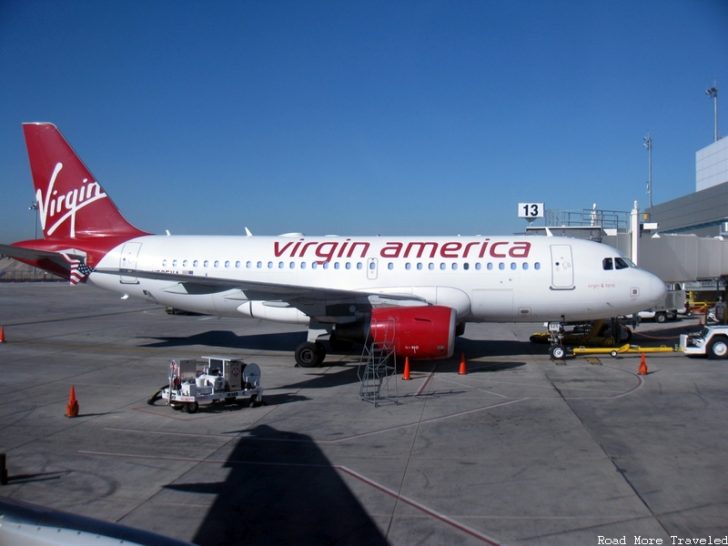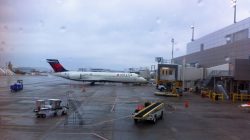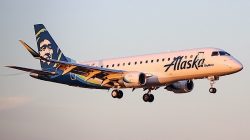
It’s been awhile since there’s been anything new in the ongoing Delta-Southwest gate tussle at Dallas Love Field. When we left off, District Judge Ed Kinkaide issued a restraining order, allowing Delta to continue flying while the dispute winds its way through the courts. On Thursday, however, a federal appeals court ruled in favor of Delta, keeping the injunction in place. Thus, the Delta gates at Love Field remain in the carrier’s control, at least for now. The 2-1 appellate ruling brought mostly bad news for Southwest. However, the dissent provided a small glimmer of hope for the hometown carrier.
How We Got Here and Thursday’s Ruling
I’ve chronicled the facts of the case several times, so I’ll keep this brief. The dispute traces back to Five Party Agreement, which repealed the Wright Amendment in 2006. The agreement phased out Wright restrictions over 8 years. However, it only addressed gate space for three airlines operating at DAL at the time. These were American, Continental dba ExpressJet, and Southwest. In a nutshell, Southwest claims Delta has no rights to gate space, since it wasn’t part of the agreement. Furthermore, Southwest quickly announced a ramp-up in service after the Wright repeal, and then argued that it had no room to accommodate Delta. With 180 flights spread over 10 gates, Southwest effectively “froze” Delta out of gate space.
Problem is, Article I, Paragraph 3 seems pretty unambiguous in my reading. If a new airline wishes to serve DAL, the city must seek voluntary accommodations from existing carriers. If they refuse, the city must compel the airlines to play nice. The city of Dallas, however, refused to play referee, thus punting the matter to court. Judge Kinkaide issued his order on the basis that Delta had a “substantial likelihood of success on the merits of its … claim that it is entitled to be accommodated by Southwest.” Southwest appealed, bringing us to Thursday’s appeals court ruling.
In the Thursday ruling, the a three-judge panel of the 5th circuit voted 2-1 to uphold the injunction. In other words, the majority agreed with Judge Kinkaide on Delta’s substantial likelihood of success. Notable, however, was Judge Edith Jones’ dissent.
Notably, Judge Edith Jones wrote that Delta did not have the standing to sue because it was not a party to the original lease, supporting one of Southwest’s leading arguments.
Though far from dispositive, this does suggest a sliver of hope for Southwest. Perhaps their argument isn’t so far fetched, though personally, I don’t see the logic.
A New Twist?
Recent developments outside the courtroom add an intriguing angle to the dispute. Specifically, Alaska’s takeover of Virgin America. Why is this relevant here? Because of continuing restrictions on airlines serving both DAL and DFW at the same time. You may recall, the DOT awarded Virgin America two gates at DAL. These gates were stripped from AA as a condition of its merger with US Airways. But VX already operated flights from DFW. Basically, no airline not already operating from both airports in 2006 could serve both after the Wright repeal compromise. Therefore, Virgin surrendered its gates a DFW, transferring service to Love Field.
Meanwhile, Alaska today operates flights to Portland and Seattle from DFW. At some point, Alaska will have to choose which airport to serve. Could Alaska walk away from Love Field, opening up two gates for Delta to keep using? Based on Virgin’s putrid initial performance, who could blame Alaska for walking away. However, Virgin’s recent numbers show marked improvement. My rudimentary analysis suggests load factors in the 80-85% range the last couple months. Granted, much of that is courtesy of cheap airfares. For example, a one-way to San Francisco in March runs less $140 or less on many days.
But perhaps more important than flight economics are where these flights operate to. Namely, VERY valuable slots at Washington Reagan and New York LaGuardia. I imagine Alaska won’t want to walk away from those. At least I wouldn’t, if I were running an airline. Perhaps Alaska ditches all routes except LGA and DCA. But that would entail moving its existing Portland and Seattle flights to Love – ultimately requiring two gates anyway. Throw in the bad blood between Alaska and Delta, and I doubt they’re in any hurry to do their competitor a favor.
Final Thoughts
Judge Jones’ thoughts notwithstanding, I still don’t see a path to victory for Southwest. The Five Party Agreement seems unambiguous, and Judge Kinkaide ripped both Southwest and the city a good one in his injunction ruling. I initially figured the Alaska-Virgin merger might render everything moot. But upon further review, that seems unlikely. So grab the popcorn, and enjoy the show for the forseeable future. Meanwhile, if you frequent one of Delta’s five flights a day to Atlanta, fear not. Your flights aren’t going anywhere, anytime soon.




